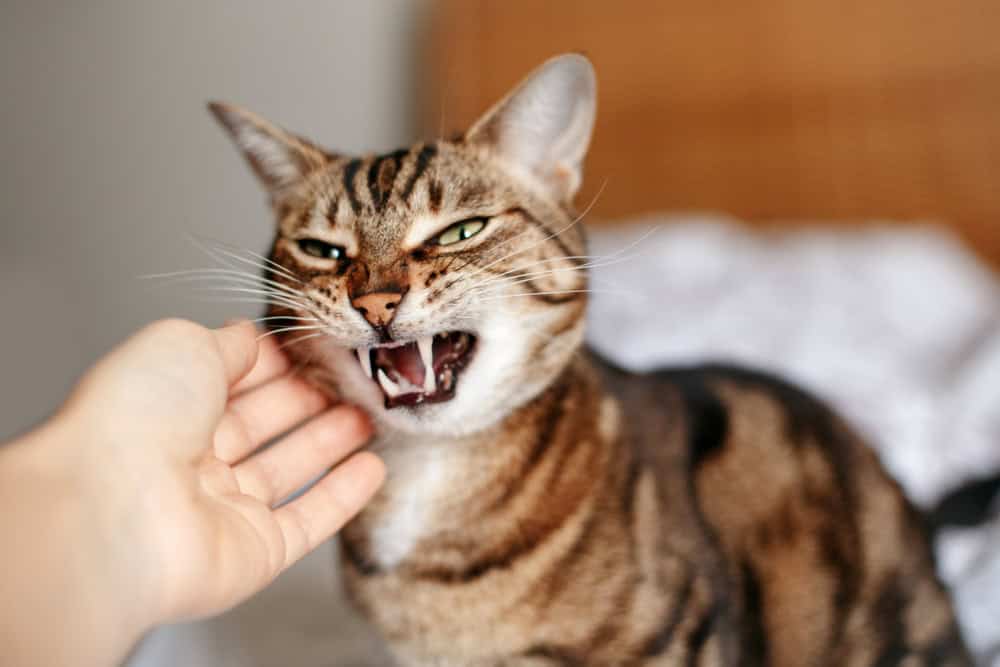Taking the best possible care of your pet can be a delicate balancing act. While you don’t want to call the veterinarian’s office every time your cat drops a whisker or your dog doesn’t feel like fetching, you don’t want to miss any signs that your pet truly needs veterinary care. However, some pet illness signs are subtle, so you always need to keep a close eye on your pet’s signs and behaviors because some changes indicate they need veterinary care. Our Advanced Veterinary Care of Pasco team describes 10 pet illness signs you should never ignore.
Pet illness sign #1: Eating habit changes
If your pet is suddenly hungrier than usual, this could indicate temporary stress, inadequate nutrition, or an intestinal parasite. Underlying conditions that make dogs and cats lose their appetite include bacterial or viral infections, kidney or liver disease, diabetes, dental disease, and cancer.
Pet illness sign #2: Drinking and urination changes
Pets who are excessively thirsty—drinking water and urinating a lot more than usual—could be ill. Also, a sudden decrease in drinking and urinating can indicate a problem. Conditions that relate to these behaviors include kidney disease, diabetes, and urinary tract infections (UTIs).
Pet illness sign #3: Unexplained weight changes
If your cat or dog suddenly loses or gains weight without any changes to their diet or in their eating, drinking, and exercise habits, they may have a thyroid issue or metabolic disorder. Call our Advanced Veterinary Care of Pasco team veterinarian if your pet loses or gains more than 10% of their body weight in a short time.
Pet illness sign #4: Coat or skin changes
Hair loss, lumps, bumps, rashes, or excessive itching could be signs of infection or underlying disease. Your pet could also have flea allergy dermatitis (FAD), an attached tick, or allergies to an ingredient in their food or environmental triggers such as pollen, dust mites, or mold.
Pet illness sign #5: Dental problems
By the time they are 3 years of age, most dogs and cats have dental problems. Periodontal disease, the most common issue, needs treatment to prevent tooth and bone loss. Stay alert for bad breath, broken or loose teeth, bleeding from the mouth, swelling under the eye, tartar on the teeth, pawing at the face, and eating difficulties. Pets need routine professional dental cleanings and regular toothbrushing to keep their teeth and gums healthy and to prevent kidney, liver, or heart damage.
Pet illness sign #6: Vomiting or diarrhea
Occasional vomiting or diarrhea is no cause for concern, but recurring or severe episodes could indicate your pet has a gastrointestinal (GI) infection or organ dysfunction.
Pet illness sign #7: Urination or defecation habit changes
You might notice changes in urination or defecation habits when you walk your dog or see your cat use the litter box. Constipation, diarrhea, bloody stool, or trouble urinating might indicate a problem that needs medical attention. A dog might have internal parasites, food allergies, viruses, inflammatory bowel disease, or bowel cancer. A cat might have an inflamed urinary tract, kidney or thyroid disease, diabetes, or an age-related complication. If your dog poops or pees in the house, or your cat eliminates outside the litter box, the problem could be medical or emotional.
Pet illness sign #8: Mobility changes
If your pet is limping or reluctant to move, they may have musculoskeletal issues, joint pain, or an injury, any of which calls for prompt veterinary evaluation and treatment.
Pet illness sign #9: Behavior changes

A pet who sleeps more than usual, is lethargic or shows little interest in activities they normally enjoy, could be ill or experiencing discomfort. Other sudden changes in behavior, such as aggression, anxiety, or disorientation, may signal they are in pain, have neurologic issues, or other conditions that need veterinary attention.
Pet illness sign #10: Emitting a foul odor
Bad smells coming from your pet’s mouth, ears, skin, or hind end could signal dental disease, ear infection, skin infection, or a GI issue that requires veterinary care.
If your pet exhibits any of the illness signs we have discussed here, or you have other concerns about your pet’s health, contact our Advanced Veterinary Care of Pasco team.

